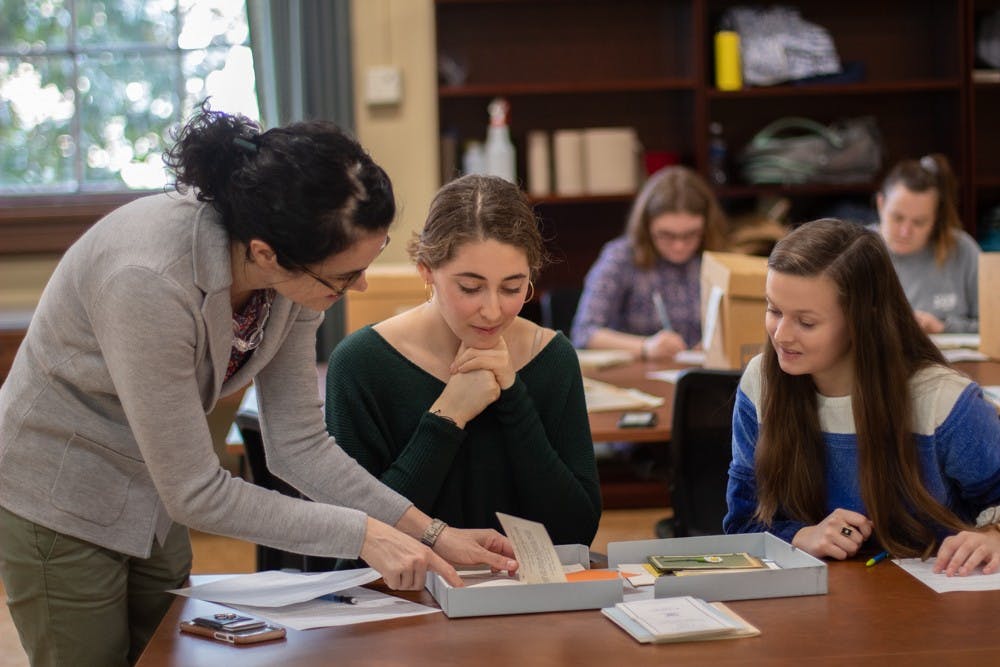Coinciding with the centennial anniversary of the 19th Amendment that gave women the right to vote, a new history course will explore the experiences of women at UNC since its founding in 1789.
The 20 students in HIST 179H: Women in the History of UNC-Chapel Hill, taught by Professor Katherine Turk, will mine through the archives at Wilson Library to learn more about the experiences of female students, faculty, wives of faculty, housekeepers, food service workers and other women at UNC and how they were shaped by race, class and sexuality.
“I want them to think about the history of this campus — this campus community that they are a part of — as dynamic and ongoing," Turk said. "And that has looked really different at different times and has offered students incredible opportunity but also perpetuated incredible inequities."
Women now make up the majority of undergraduate students at UNC, but the University was an all-male institution for almost a century before women were permitted to enroll. McCall Holland, a sophomore history and peace, war and defense major who is taking the course, said she is excited to learn about this population shift.
Skyler Singleton, a junior history and political science major, said the unique subject material drew her to the course.
“I hope to gain a greater understanding and appreciation for the women who have been at this University before me and who have paved the way for students like me, for faculty and for staff here and to really understand and give a voice to the unsung women who have been here at the University historically,” Singleton said.
Students will approach their research thematically, Turk said. Broad topics such as social life, activism, health, labor, firsts and barriers leave interpretation open to students.
The course will also acquaint students with basic problems and concepts found in women’s history and gender history, with a particular focus on the expansion of women’s social, educational and professional opportunities, according to the syllabus.
“There are lots of ways that I expect students to see the kinds of questions that women have asked of the University in previous decades are still questions that are pressing: What does equity look like? What is fairness? What does it mean to be included in the University community in a way that is fair?” Turk said.



